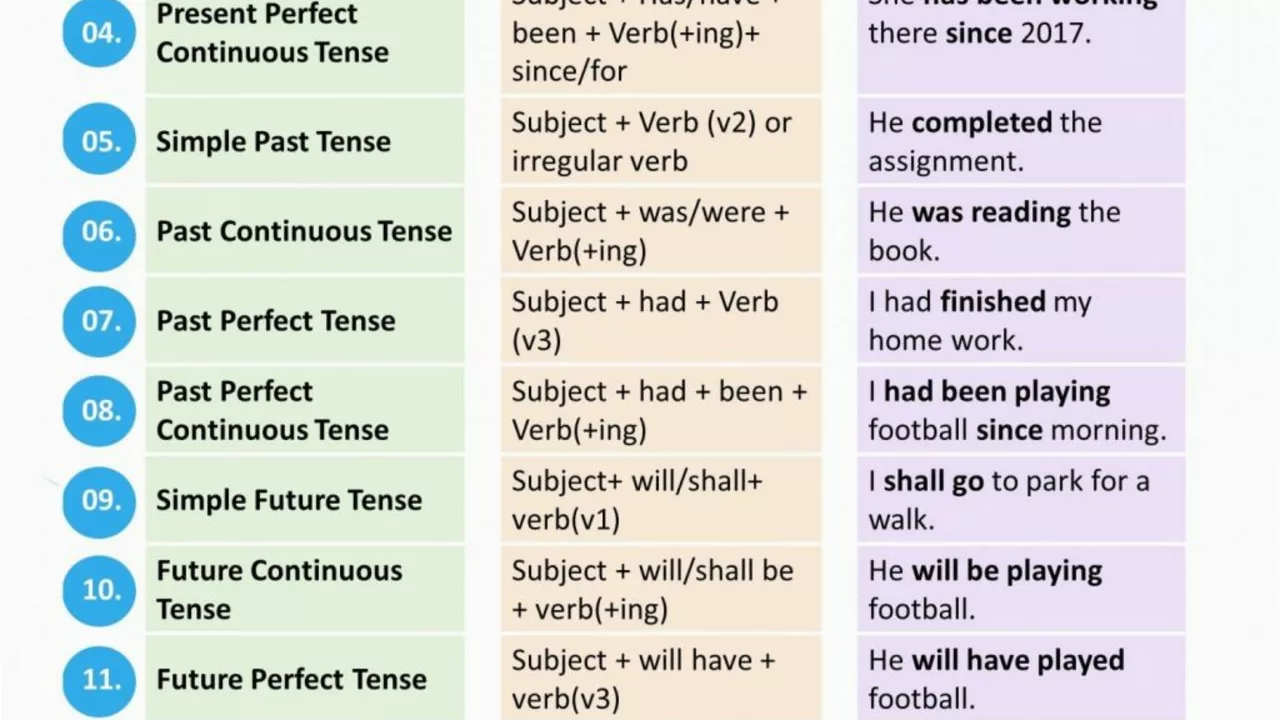Understanding the Basics of English Grammar
Before we dive into the correctness of the sentence "I didn't know that you can't swim", it's crucial to have a basic understanding of English grammar. As a blogger who often communicates in English, I've realized that grammar is the backbone of any language. It gives structure to the words we use, allowing us to communicate effectively and clearly. Without a firm grasp of grammar, our message can easily become convoluted or misunderstood.
English grammar is complex. It's full of rules, exceptions to those rules, and even exceptions to the exceptions. However, don't let this intimidate you. With time and practice, you can grasp these concepts and become adept at using them in your speech and writing. So, let's put on our grammar hats and dissect the sentence at hand.
Present and Past Tenses in English
One of the key aspects that make English grammar seem complex is its verb tenses. There are 12 tenses in English, each with its usage, structure, and examples. These tenses help us determine when an action took place – in the past, present, or future. Understanding how to use these tenses correctly can significantly improve your English proficiency.
The sentence "I didn't know that you can't swim" includes two different tenses: the past simple (I didn't know) and the present simple (you can't swim). The past simple is used to describe something that happened and finished in the past, while the present simple is used to express general truths, habits, or facts. Let's delve deeper into these tenses in the next sections.
Dissecting 'I Didn't Know'
The phrase "I didn't know" is in the past simple tense. This tense is used to talk about completed actions in the past. In our sentence, the speaker is referring to a completed state of not knowing in the past. The use of the contraction "didn't" (did not) also indicates a negative state in the past. But is it correct to use the past simple tense in this context? That's what we'll explore in the next section.
One important thing to note is that the past simple tense is usually used with a time expression indicating when the action occurred. However, in our sentence, no specific time is mentioned. This is acceptable as the time can be understood from the context.
Breaking Down 'You Can't Swim'
Moving on to the second part of the sentence "you can't swim", we find it in the present simple tense. This tense is used to express habits, general truths, or facts that are always true. The speaker is stating a fact or general truth about the person they're talking to – the person cannot swim.
However, the use of the present simple tense here might seem a bit odd because the speaker is referring to something they learned in the past. So, is it correct to use the present simple tense in this context? Let's explore this in the final section.
Is the Sentence 'I Didn't Know That You Can't Swim' Correct?
Now that we've dissected the sentence "I didn't know that you can't swim", let's answer the big question: Is it correct English? The answer is yes, it is correct. The past simple tense in "I didn't know" is correctly used to refer to the speaker's past lack of knowledge. The present simple tense in "you can't swim" is also correctly used to state a general truth about the person.
That being said, it's essential to understand that language is fluid. It's not always bound by rigid rules, especially when it comes to spoken English. Context and intonation often play a significant role in conveying the intended meaning. So, while it's crucial to understand and apply grammar rules, don't forget to pay attention to the context in which the language is being used.
 Jul, 17 2023
Jul, 17 2023